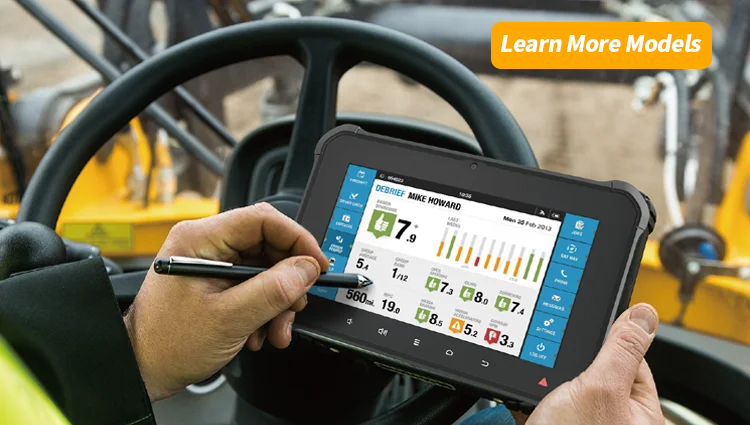Android MDM Solutions – A Complete Guide to Mobile Device Management
In today’s digital age, managing mobile devices within an organization has become crucial for business success. The rapid growth in mobile technology has made it essential for companies to ensure the security and efficiency of their mobile devices, especially those running on Android, one of the most popular operating systems. Android MDM solutions offer businesses an efficient way to manage, monitor, and secure mobile devices across their enterprise.
- What is Mobile Device Management (MDM)?
- Introduction to Android MDM Solutions
- Key Features of Android MDM Solutions
- Benefits of Android MDM Solutions for Businesses
- How Android MDM Solutions Improve IT Efficiency
- Different Types of Android MDM Solutions
- Popular Android MDM Providers in 2024
- How to Implement Android MDM in Your Business
What is Mobile Device Management (MDM)?
Mobile Device Management (MDM) refers to software solutions that help organizations manage and secure their employees’ mobile devices. These systems allow businesses to configure devices, enforce security policies, and monitor compliance, providing IT administrators with tools to manage devices remotely.
- Key Concepts: MDM covers mobile applications, data access, and device settings, ensuring consistent and secure use.
- Importance of MDM: With the rise of remote work, MDM solutions have become essential for protecting corporate data on mobile devices, which often operate outside traditional corporate networks.
Introduction to Android MDM Solutions
Android is a widely used operating system for smartphones and tablets, making it a natural choice for MDM solutions. These solutions are tailored specifically to meet the needs of businesses managing large fleets of Android devices.
- Why Android?: Android’s flexibility and open-source nature make it a popular choice for businesses seeking customizable MDM solutions.
- Evolution of Android MDM Solutions: From basic device tracking and application control to advanced threat detection and AI-driven solutions, Android MDM has grown significantly in capability.
- Android vs. Other Operating Systems: Compared to iOS and Windows, Android provides more customization options, but it also requires more security management due to its open architecture.
Key Features of Android MDM Solutions
Android MDM solutions come packed with features designed to offer comprehensive control over mobile devices:
- Remote Device Management: IT teams can manage devices, troubleshoot issues, and even wipe data remotely if a device is lost or stolen.
- Application Management: Administrators can control which applications are installed, block non-compliant apps, and push updates across all devices.
- Security Features: MDM solutions provide encryption, VPN configurations, and firewall controls, ensuring that corporate data remains safe.
- Data Encryption: Sensitive business data is protected through strong encryption standards, both at rest and in transit.
Benefits of Android MDM Solutions for Businesses
Implementing Android MDM solutions can provide several key advantages:
- Enhanced Security: Corporate data is safeguarded from unauthorized access, theft, and cyberattacks.
- Cost-Effectiveness: Android devices and their MDM solutions often provide a more affordable option compared to other platforms.
- Employee Productivity: By managing apps and access rights, businesses can ensure employees use their devices productively.
How Android MDM Solutions Improve IT Efficiency
MDM solutions not only secure devices but also improve IT department workflows:
- Streamlined Configuration: IT teams can deploy configuration settings to multiple devices at once.
- Simplified App Deployment: Applications can be pushed remotely, ensuring all employees have the necessary tools.
- Real-time Monitoring: Devices can be monitored in real-time, allowing IT to address issues immediately.
Different Types of Android MDM Solutions
There are various types of MDM solutions to consider:
- Cloud-based vs. On-premise: Cloud-based solutions offer scalability and flexibility, while on-premise solutions provide more control.
- Free vs. Paid Solutions: Some businesses may opt for free solutions, but paid versions typically offer more advanced features.
- Open Source Solutions: These allow businesses to customize their MDM platforms to fit their specific needs.
Popular Android MDM Providers in 2024
Several providers lead the Android MDM market:
- Google Workspace: Offers comprehensive device management features for businesses using Android.
- Microsoft Intune: Integrates seamlessly with Windows environments but also supports Android devices.
- VMware Workspace ONE: Provides robust tools for managing devices across multiple platforms.
- Samsung Knox Manage: A leading solution specifically designed for managing Samsung Android devices.
How to Implement Android MDM in Your Business
Implementing MDM can be a smooth process if approached correctly:
- Steps to Set Up MDM: Identify your business needs, choose the right provider, and follow the setup steps to deploy devices.
- Key Considerations: Ensure that your chosen MDM solution aligns with your security policies and device usage scenarios.
- Common Challenges: Initial deployment can be tricky, but with proper planning, issues can be minimized.








